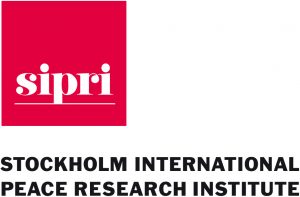SIPRI Report:

A Stockholm International Peace Research Institute (SIPRI) report was released that highlighted the increased risk and instability associated with the ongoing modernisation and expansion of nuclear arsenals worldwide.
Key Highlights of the Report:
- All nine nuclear-armed states (USA, Russia, UK, France, China, India, Pakistan, North Korea, and Israel) continued to modernise their nuclear arsenals.
- The total global inventory of nuclear warheads was approximately 12,121 as of January 2024, with about 9,585 in military stockpiles.
- Around 2,100 warheads were kept on high operational alert, primarily by Russia and the USA, but for the first time, China may have some warheads on high alert.
- Russia and USA together hold almost 90% of all nuclear weapons.
- China has significantly increased its nuclear arsenal from 410 to 500 by January 2024 and is expanding its nuclear arsenal faster than any other country.
- North Korea has approximately 50 warheads and materials for up to 90.
- Israel is modernising its arsenal and enhancing plutonium production capabilities (though not officially acknowledged).
- India now has 172 nuclear warheads as of January 2024, ranking 6th globally, ahead of Pakistan (170), and is emphasising longer-range weapons aimed at China.
- Nuclear arms control and disarmament diplomacy faced setbacks, particularly due to the war in Ukraine and Gaza.
- Tensions between Iran and the USA fluctuated and the Israel-Hamas war complicating diplomatic efforts.
- Significant setbacks included Russia’s suspension from the New START treaty and withdrawal from the Comprehensive Nuclear-Test-Ban Treaty (CTBT) ratification.
- It also highlighted issues like military expenditure, arms transfers, and the role of private military companies in conflicts.
- It also highlighted the risks related to artificial intelligence, outer space, cyberspace, and the protection of civilians in war zones.
SIPRI:
- It is an independent international institute dedicated to research into conflict, armaments, arms control and disarmament.
- It was established in 1966 in Stockholm (Sweden).




